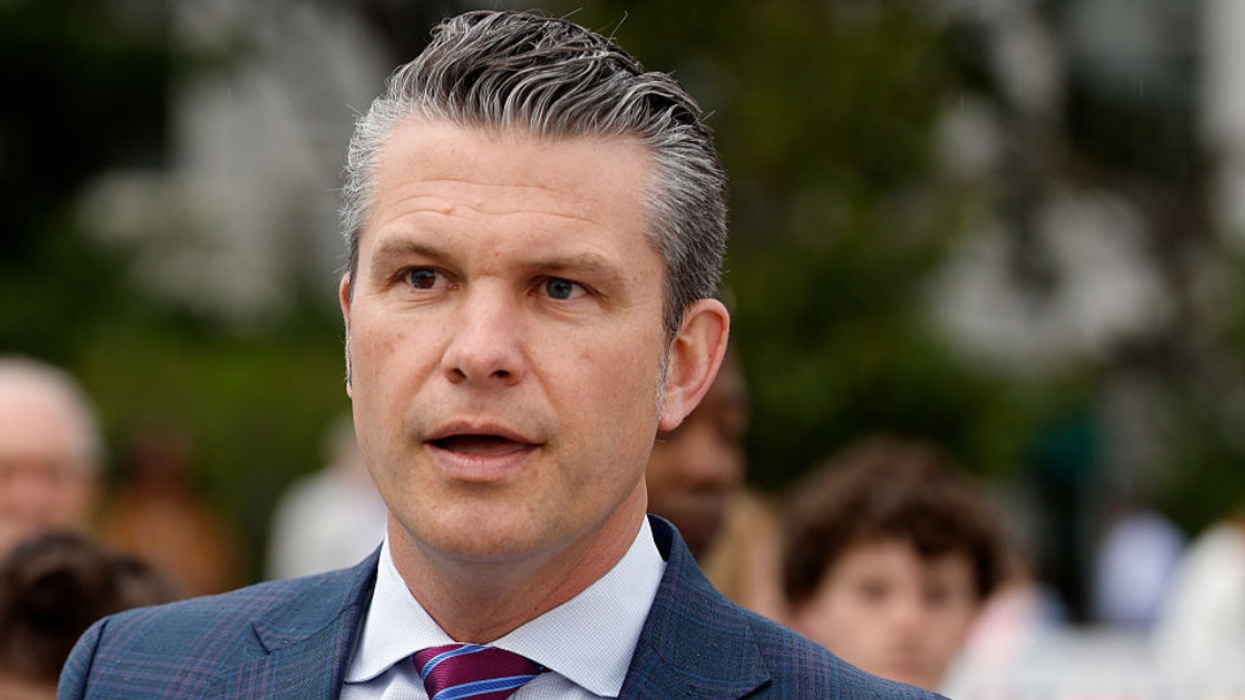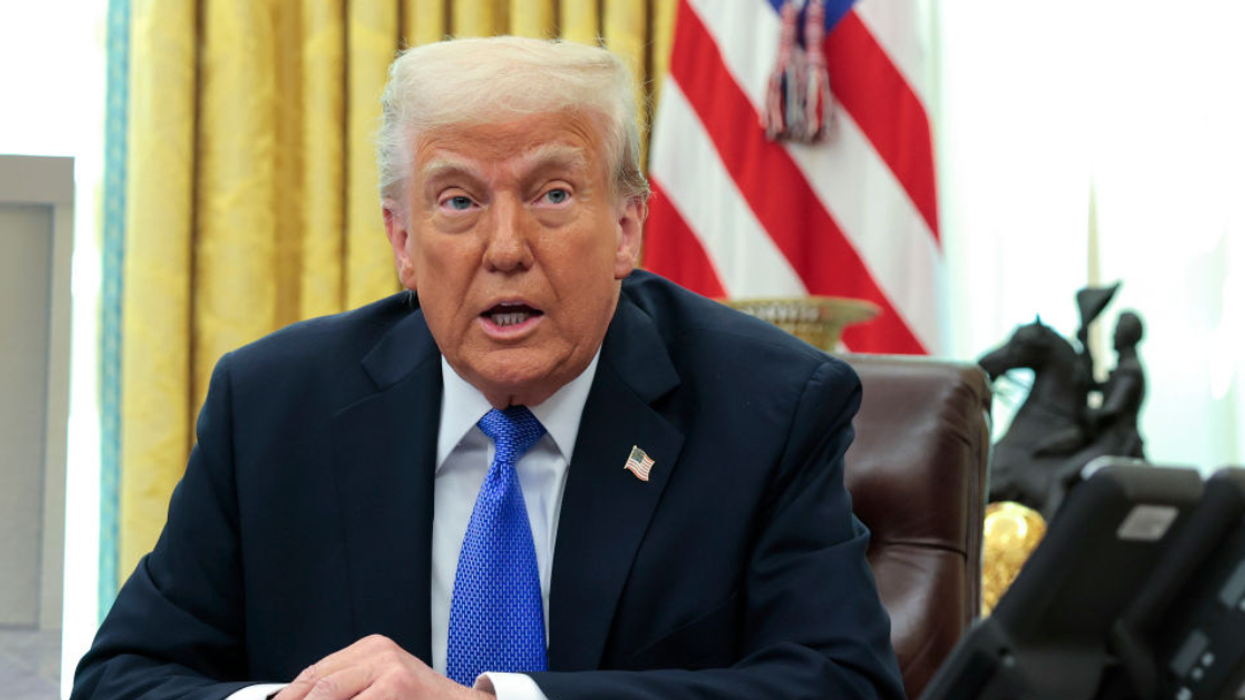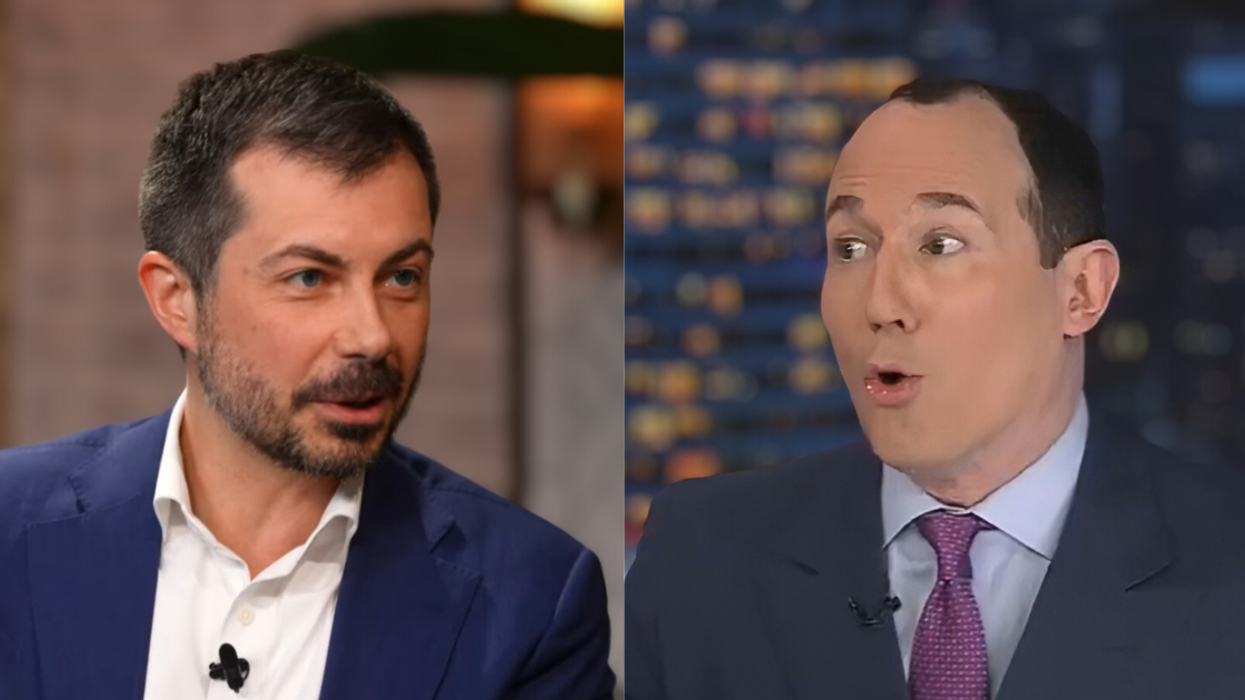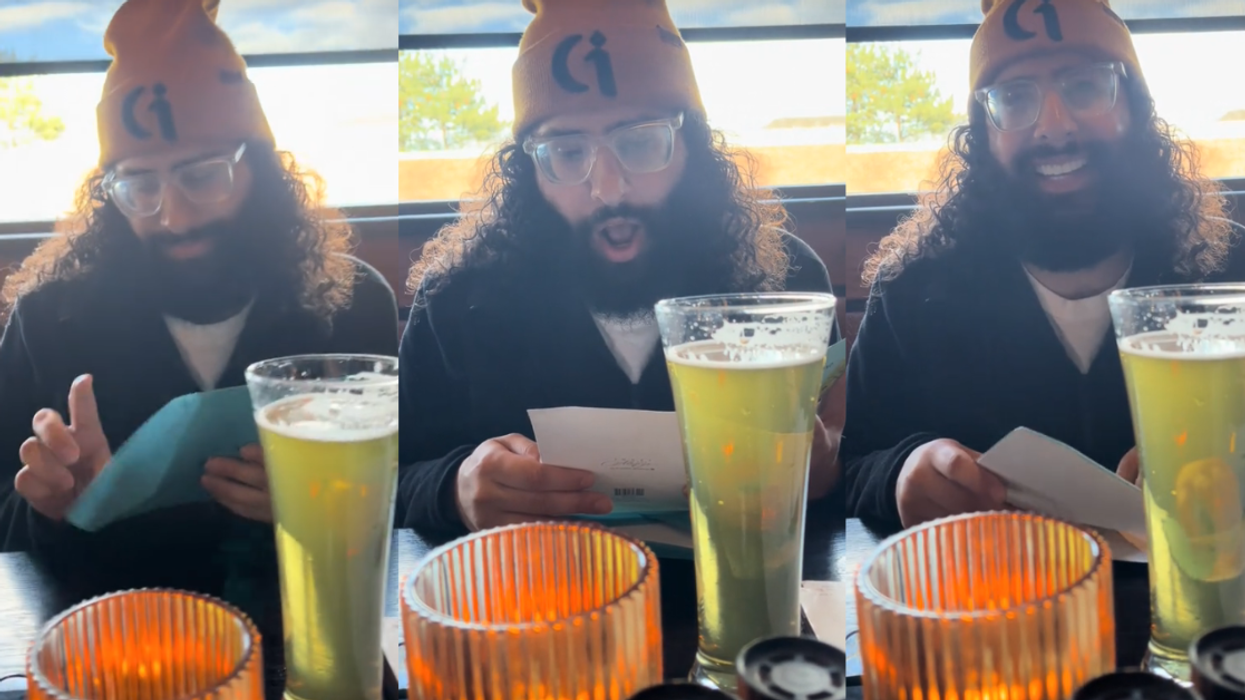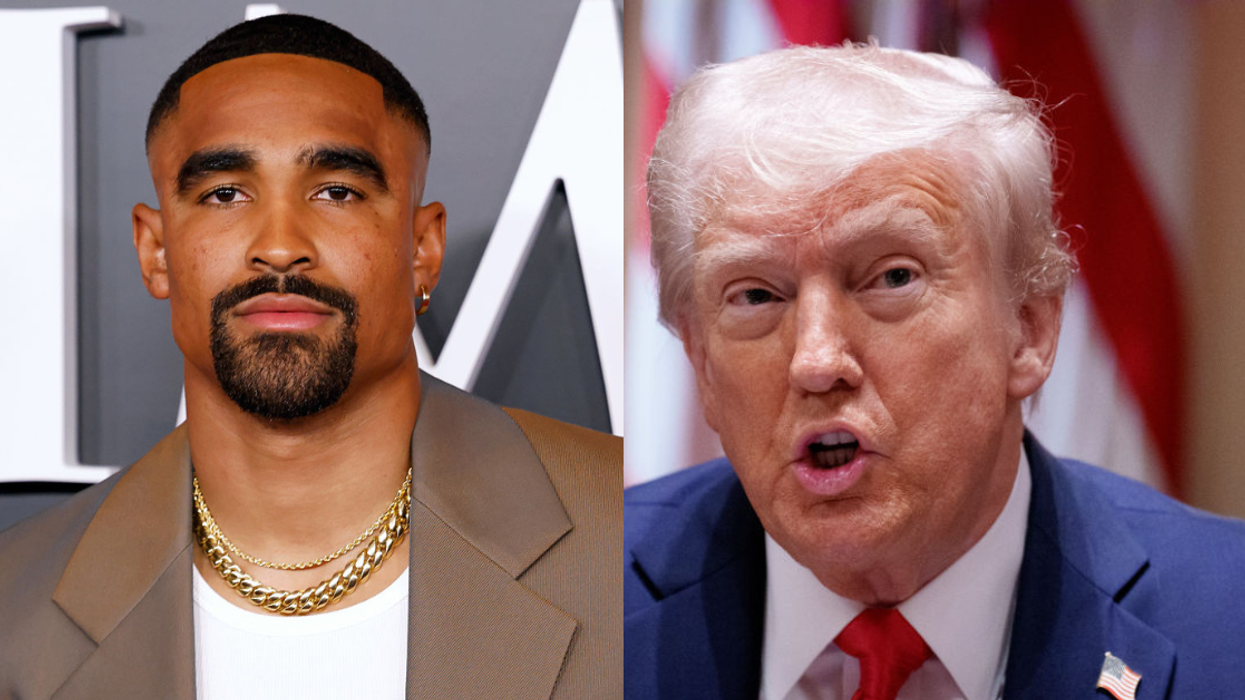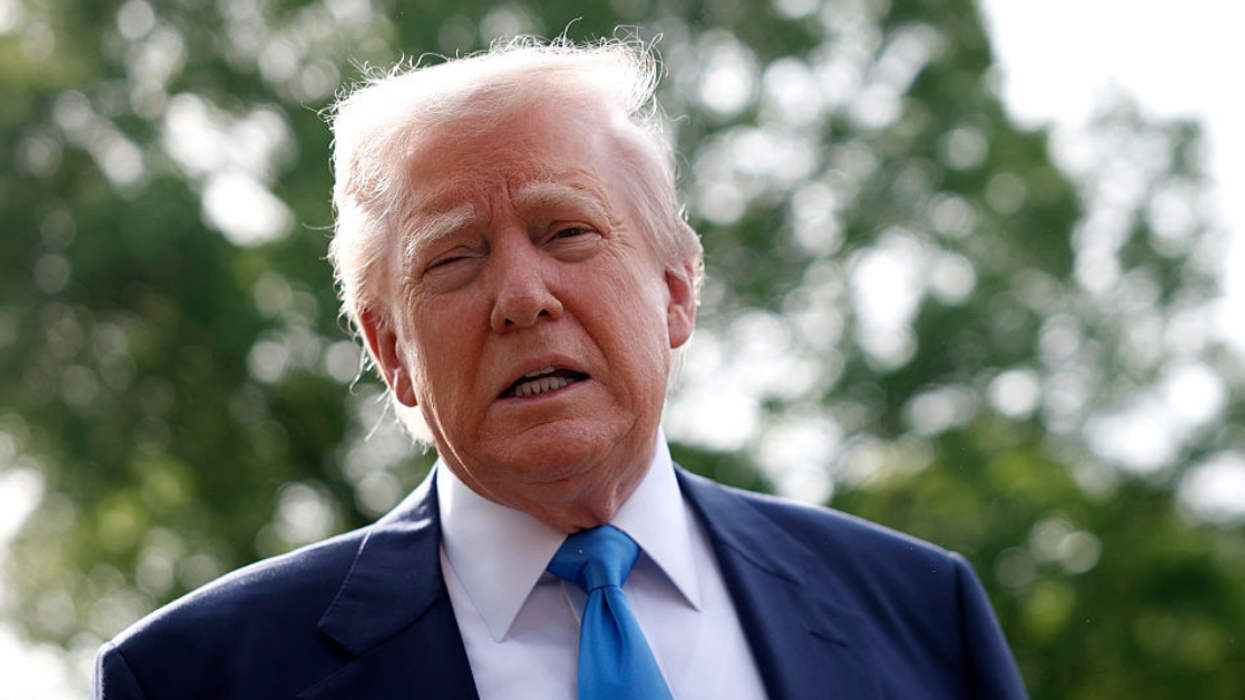In another empty gesture to appeal to his Christian nationalist and White supremacist base, MAGA Republican President Donald Trump vowed to bring back Columbus Day.
But just like when Trump "brought back" Christmas, Columbus Day is a holiday that never went away. There's a difference between not everyone celebrating a holiday and a holiday being eliminated that Trump and his followers seem to not understand.
The fact that Columbus Day still exists didn't stop Trump from pandering to his MAGA minions on Truth Social.
He posted:
"I’m bringing Columbus Day back from the ashes. The Democrats did everything possible to destroy Christopher Columbus, his reputation, and all of the Italians that love him so much. They tore down his Statues, and put up nothing but 'WOKE,' or even worse, nothing at all!"
"Well, you’ll be happy to know, Christopher is going to make a major comeback. I am hereby reinstating Columbus Day under the same rules, dates, and locations, as it has had for all of the many decades before!"
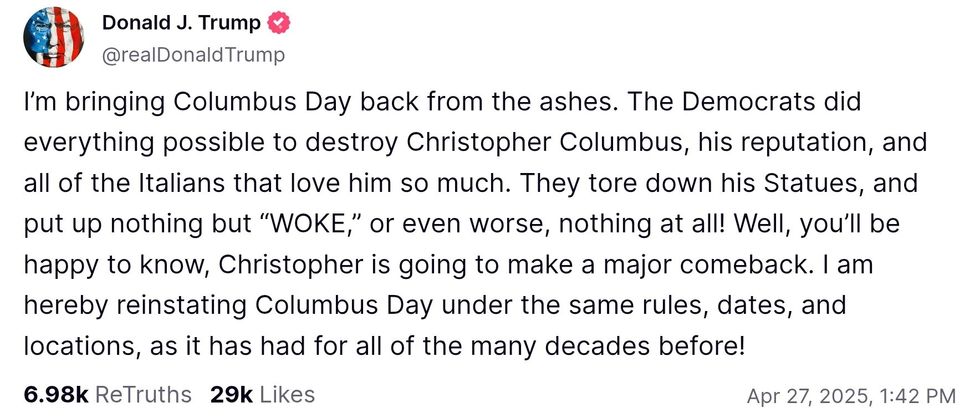
Trump’s proclamation was met with mockery online.
Some called his message out as mere distraction from the disastrous start of his second presidential term.












Indigenous Peoples' Day was recognized by presidential proclamation from 2021-2024 by Democratic President Joe Biden, but Columbus Day was never eliminated from the federal calendar of official observations.
Biden also issued proclamations during his presidency for Columbus Day.
But many people felt Columbus's legacy is nothing to celebrate.

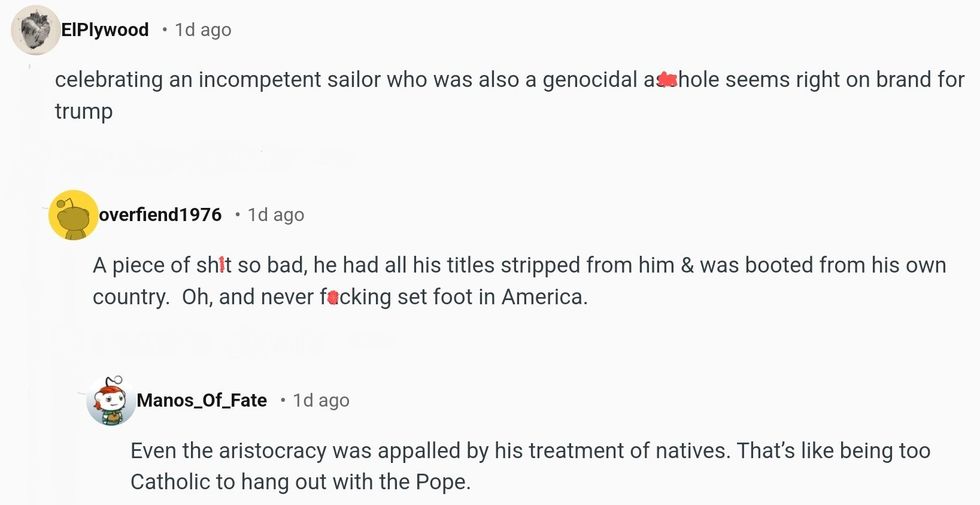






The initial concerted effort to create a national celebration of Christopher Columbus was in response to the murders of 11 Italian-Americans by an angry mob in New Orleans, Louisiana in 1891.
Accused of killing the city's police chief, 19 Italian-Americans were indicted on little to no evidence. At the time, anti-immigrant sentiment was rampant, spurred by massive numbers of Europeans coming to the Americas during the Industrial Revolution.
But after six of the accused were acquitted and three more received mistrials, a lynch mob stormed the prison where the remaining 10 men were being held. The mob shot and killed 11 men identified as Italian immigrants, including several that were not among those accused of the police chief's death.
The incident impacted diplomatic relations between Italy and the United States. As an olive branch to the Italian government, President Benjamin Harrison proclaimed the 400th anniversary of Columbus’s arrival in the Caribbean a national holiday in 1892, but it was only a one-time celebration.
By the 1900s, both the Catholic Church and Italian-American organizations wanted a federal holiday to celebrate a Roman Catholic Italian to counter anti-Catholic and anti-immigrant sentiments. A misinformation and White nationalist propaganda campaign was created to push for a Columbus-centered holiday at the state and national level.
In 1934, due to lobbying by the Catholic men's organization the Knights of Columbus and New York City Italian leader Generoso Pope, Congress passed a statute stating:
"The President is requested to issue each year a proclamation (1) designating October 12 as Columbus Day; (2) calling on United States government officials to display the flag of the United States on all government buildings on Columbus Day; and (3) inviting the people of the United States to observe Columbus Day, in schools and churches, or other suitable places, with appropriate ceremonies that express the public sentiment befitting the anniversary of the discovery of America."
The federal holiday continued as an annual presidential proclamation beginning with Democratic President Franklin D. Roosevelt on October 12, 1934 until 1971.
In 1966, Mariano A. Lucca founded the National Columbus Day Committee to make the observance a federal holiday independent of presidential proclamation. Resulting legislation was signed by Democratic President Lyndon Johnson in 1968 with an effective date of 1971.
Originally set for October 12 in recognition of the day Columbus recorded arriving in the Caribbean homelands of the Indigenous Taino nation, in 1971 the observance was changed to the second Monday in October and has remained on the federal observances calendar ever since.
But the revisionist history, myths, and lies surrounding Columbus and his activities in the Caribbean and coastal Central America began to unravel in the late 1900s. While the holiday remains in effect for federal agencies and workplaces, states and municipalities have exercised their authority to eliminate it.



The District of Columbia and the states of Colorado, Hawai'i, Alaska, Vermont, South Dakota, New Mexico, Maine, Minnesota, and parts of California no longer observe Columbus Day. They have replaced it with celebrations of Indigenous Peoples' Day, Discoverers' Day in Hawai'i, and Native American Day in South Dakota.
Delaware, Oregon, and Washington state no longer recognize it as an official holiday, but haven't officially replaced it with anything else. New York, Rhode Island and Nebraska recognize both Indigenous Peoples' Day and Columbus Day as state holidays.
But was Columbus ever an appropriate choice as a Catholic or Italian icon?
Aside from the Catholic Church's condemnation of Columbus during his own lifetime and his crimes against humanity being documented firsthand and heavily criticized by Dominican friar Bartolomé de las Casas, he sailed for King Ferdinand II and Queen Isabella I of Spain, not Italy.

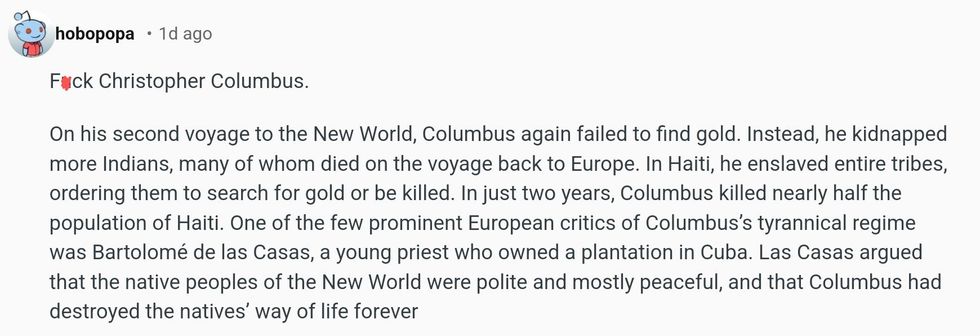
Columbus was claimed by Italian-Americans for centuries because he was believed to be ethnically Italian from the area that is now called Genoa, Italy.
However, a recent DNA study found evidence Columbus was of Spanish Sephardic Jewish origin— not Genoese nor Italian—and most likely from Valencia, Spain.

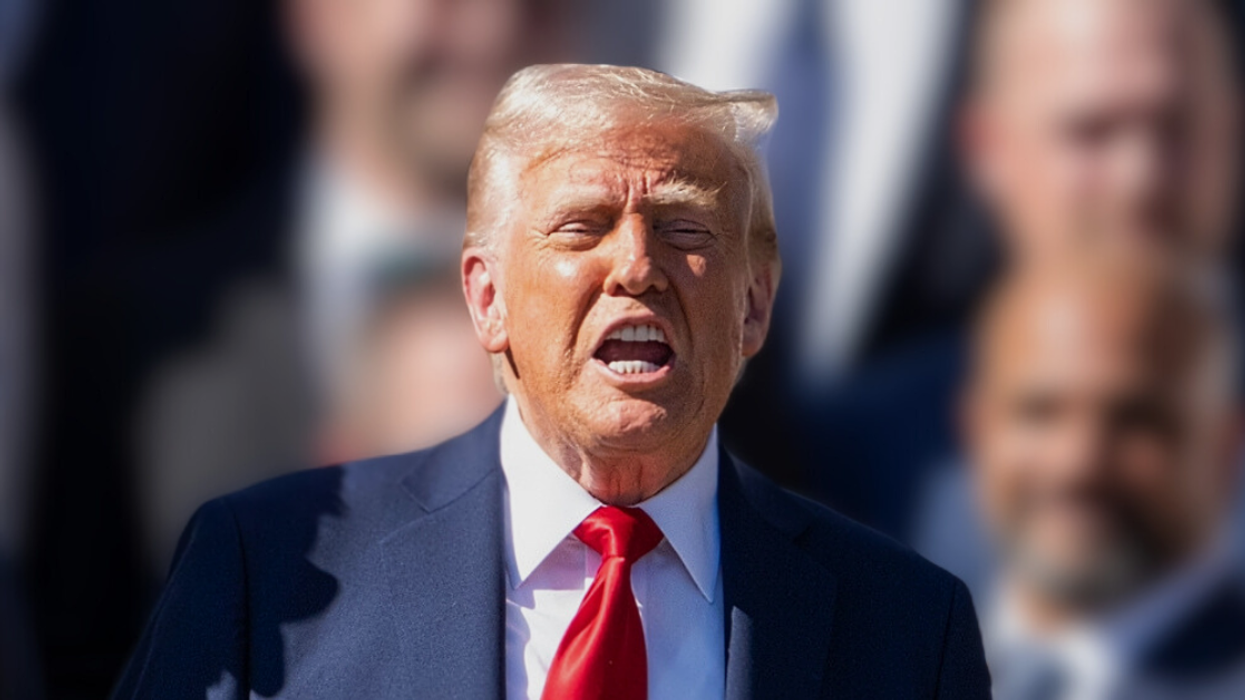






 @thatshewolf/Instagram
@thatshewolf/Instagram @corrine4903/Instagram
@corrine4903/Instagram @okayluh/Instagram
@okayluh/Instagram @haldir_elven/Instagram
@haldir_elven/Instagram @michele.elena.gray/Instagram
@michele.elena.gray/Instagram @melanieandkellypreece/Instagram
@melanieandkellypreece/Instagram @iamseanmaguire/Instagram
@iamseanmaguire/Instagram @antload/Instagram@
@antload/Instagram@ @auntielala/Instagram
@auntielala/Instagram @2classylass/Instagram
@2classylass/Instagram
